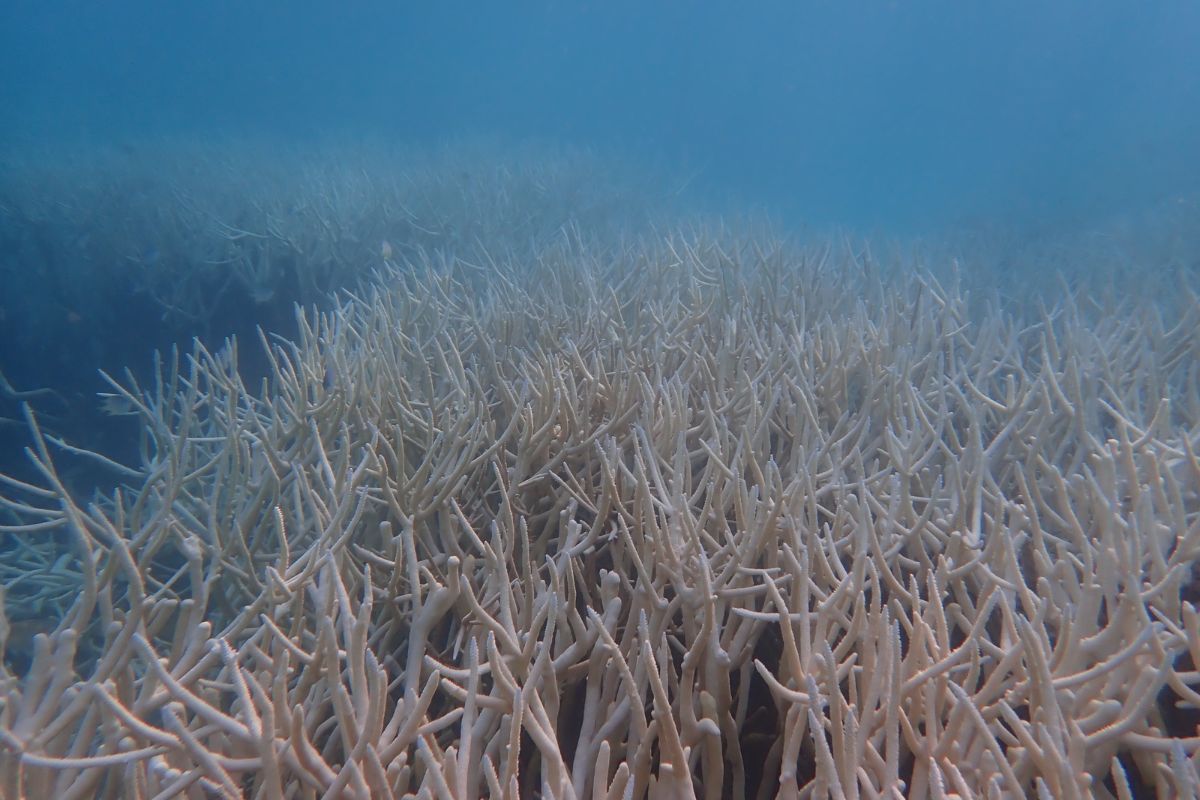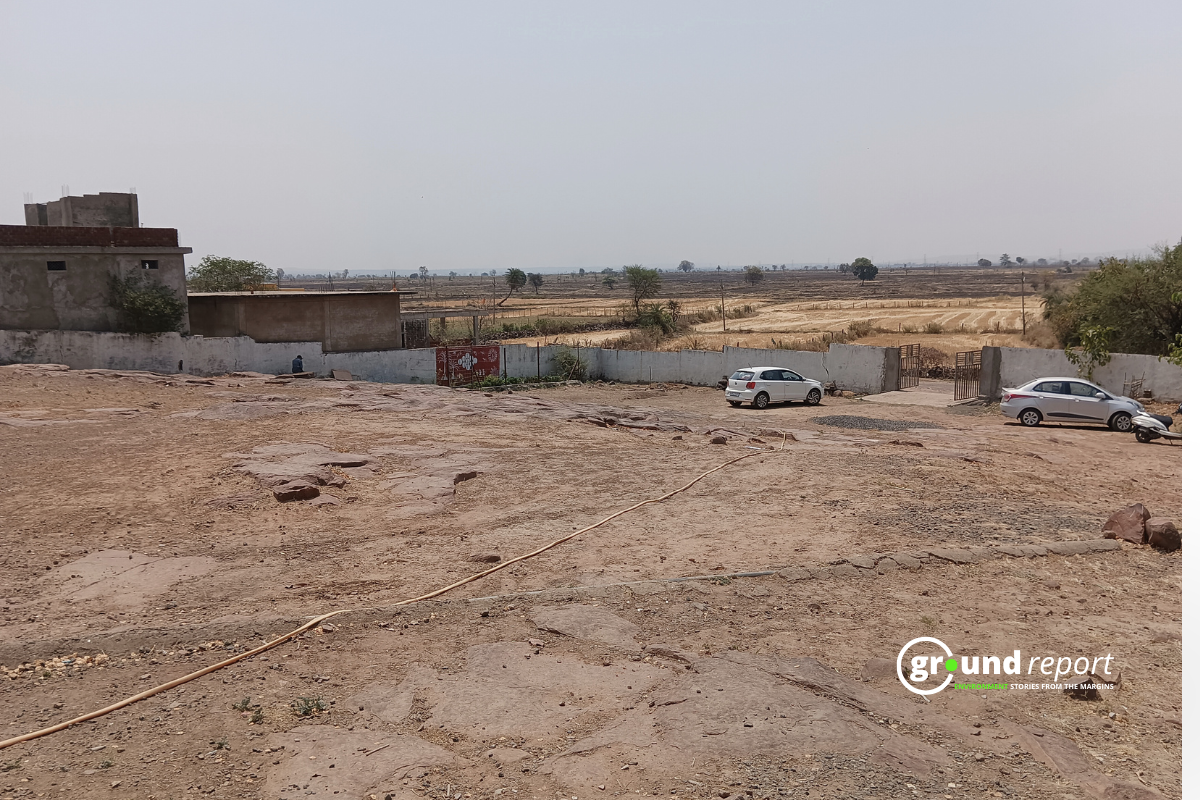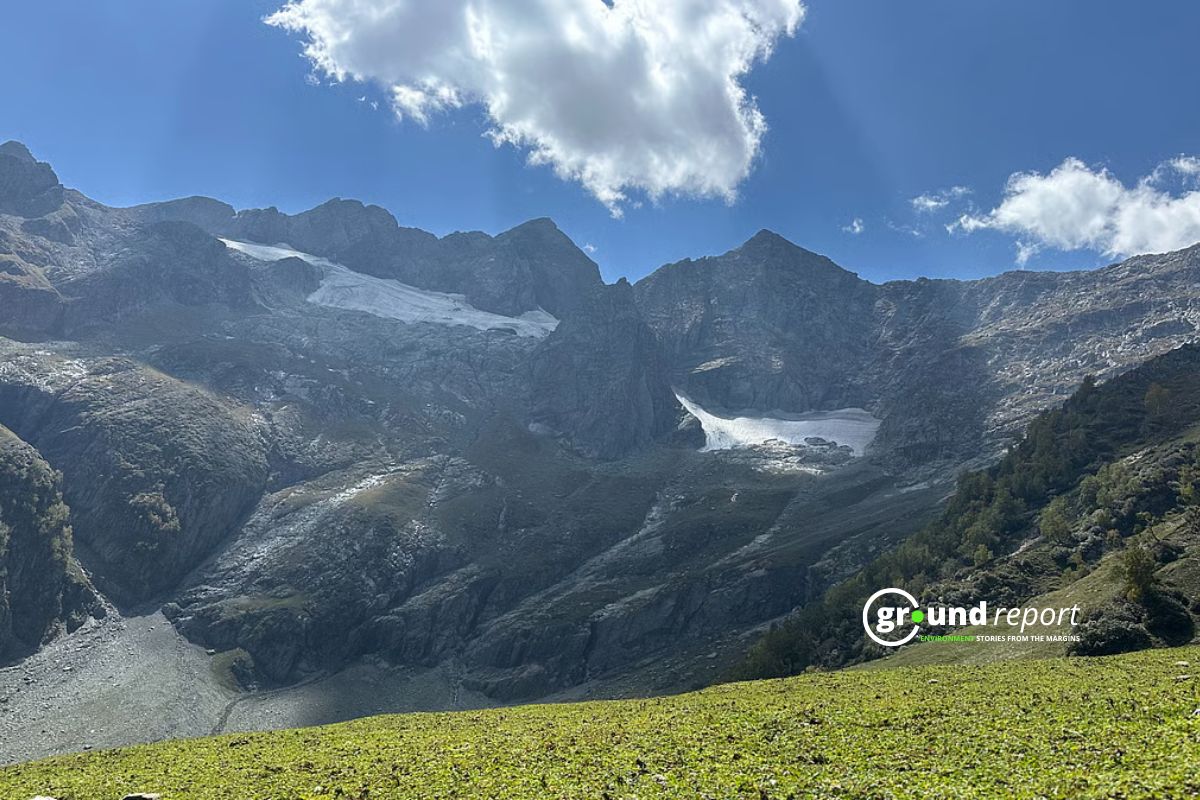Heatwaves sweeping across Tamil Nadu have sparked coral bleaching in Palk Bay, threatening the delicate marine ecosystem. A recent survey conducted in April 2024 revealed that the temperature of the Gulf of Mannar had surged to 33°C, surpassing the critical bleaching threshold.
The survey, spanning Palk Bay, Thoothukudi, and Mandapam, uncovered distressing findings, with 50% of the Porites coral genus exhibiting signs of bleaching. Of these, 10% were found to be completely bleached, while the remainder showed partial bleaching. More, other massive coral genera, including Favites, Dipsastraea, Goniastrea, and Platygyra, also experienced varying degrees of bleaching.
Tamil Nadu heatwaves bleach corals
According to the report of The New Indian Express, the intensifying heatwave in Tamil Nadu has triggered a mass coral bleaching event in Palk Bay, marking the fourth such global occurrence this year. Since February, over 50% of the world’s corals have succumbed to bleaching due to unprecedented temperature spikes.
Scientists monitoring the situation in Palk Bay express hope for rainfall in the coming weeks, which could potentially alleviate the bleaching effects by lowering temperatures below the critical 33-degree threshold.
Jagdish S Bakan, director of the Gulf of Mannar Biosphere Reserve, underscored the urgency of the situation, stating, “Coral bleaching was spotted in some pockets of the reserve last week.”
He further emphasized the collaborative efforts underway, with the Thoothukudi-based Suganthi Devadason Marine Research Institute (SDMRI) and the Chennai-based National Centre for Sustainable Coastal Management (NCSCM) conducting field and modelling studies to assess the extent of bleaching.
Heat stress threatens coral survival
Senior scientist at the Central Marine Fisheries Research Institute (CMFRI), K.R. Sreenath said, “Such heat stress levels signify a severe threat to coral health, leading to extensive bleaching where corals lose the symbiotic algae [zooxanthellae], compromising their survival by depriving them of essential nutrients. If the situation continues to rise, it could precipitate an unprecedented biodiversity crisis due to multispecies mortality.”
He outlined the detrimental impacts on seagrass ecosystems, stating, “The ongoing heat waves also threaten other critical marine habitats, including seagrass meadows. Similar to corals, seagrass meadows are experiencing detrimental impacts due to the heatwaves, such as impaired photosynthesis, reduced growth, and hindered reproductive functions. The degradation of these ecosystems can lead to the collapse of local marine food webs, affecting a wide range of marine species, from fish communities to marine mammals like dugongs and dolphins.”
Keep Reading
Part 1: Cloudburst in Ganderbal’s Padabal village & unfulfilled promises
India braces for intense 2024 monsoon amid recent deadly weather trends
Support us to keep independent environmental journalism alive in India.
Follow Ground Report on X, Instagram and Facebook for environmental and underreported stories from the margins. Give us feedback on our email id greport2018@gmail.com.
Don’t forget to Subscribe to our weekly newsletter, Join our community on WhatsApp, and Follow our YouTube Channel for video stories.









